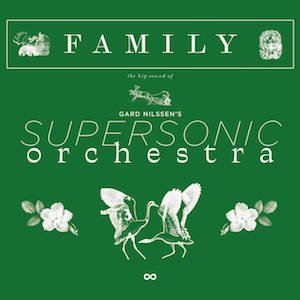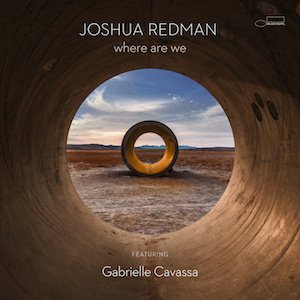Label: ECM Records, 2023
Personnel - Sinikka Langeland: voice, kantele, Jew’s harp; Trygve Seim: tenor and soprano saxophone; Mathias Eick: trumpet; Mats Eilertssen: bass; Thomas Strønen: drums.
Norwegian vocalist and kantele player, Sinikka Langeland, makes a return with an ace roster of Norwegian bandmates after the release of her excellent solo album, Wolf Rune (ECM, 2021), whose musical enchantments are not matched here. Nevertheless, this sometimes enthralling, sometimes touching sonic journey offers much to appreciate as the band, originally assembled for celebration concerts in honor of the bandleader’s 60th birthday, paints scenic landscapes with their individual stamp. Here, Langeland plays the 5, 18 and 39-string variations of kantele, a traditional Finnish instrument, and sings the poems of Jon Fosse, whose quests of faith and proclivity for mysticism serve the folk nature of the music.
The album opens with “Row My Ocean”, a beautiful song also featured on her previous album. The new arrangement weaves it into a feathery web that is both tranquil and emotional. Trumpeter Mathias Eick, a new addition, and saxophonist Trygve Seim, a frequent collaborator, discourse simultaneously, while Mats Eilertsen’s bowed bass adds another melodic layer. The horn players once again alternate lines in the sung version of “Wind and Sun”, whereas the instrumental version allows some tension to erupt from the pacified atmosphere. This is achieved through a swiftly plucked bass pedal and the varied percussion options - ranging from rattles to gongs to cymbals - introduced by drummer Thomas Strønen.
Set in motion by an admirable bass delineation, “It Walks and Walks” carries a mournful tone, interspersed with a few rays of light during Seim’s tenor statement. This spirit borders the introspective ambient folk of “A Child Exists”, which bathes in minimalistic waters, and differs from “When the Heart is a Moon”, a levelheaded folk pop song with a well-defined harmonic progression, as well as “The Love”, an unexpected rhythmic digression into warm bossa nova territory.
Segueing from theme to theme, with kantele comping slithering underneath, the album comes to an end with “You Hear My Heart Come”, a soothing waltzing piece with a jazzy feel and solo space. Preceding this, Langeland showcases her skills on the Jew’s harp in “Wind Song”, evoking the essence of the Earth with linearity and expressive freedom.
Langeland doesn’t reinvent the wheel with this album, but that’s not the point. Each song carries its share of pathos and incantation, illuminated by her captivating voice and absorbing playing.
Favorite Tracks:
01 - Row My Ocean ► 08 - The Love ► 12 - You Hear My Heart Come








































